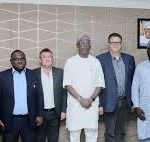The National Agency for Science and Engineering Infrastructure (NASENI) has thrown its weight behind President Bola Tinubu’s “Nigeria First Policy,” describing it as a bold step toward accelerating the country’s industrial development.
The policy, which directs the Bureau of Public Procurement (BPP) to give preference to Nigerian-made goods in public procurement, is expected to significantly boost demand for locally produced products and services.
NASENI’s Executive Vice Chairman, Khalil Suleiman Halilu, applauded the move, stating that it will empower local entrepreneurs and manufacturers by positioning the government—one of the nation’s largest buyers—as a key driver of domestic demand.
“This directive means increased demand across key sectors,” Halilu said. “It gives a much-needed lifeline to indigenous producers who often struggle to compete with imports.”
He reaffirmed NASENI’s commitment to promoting local content through its innovations, which include Nigerian-assembled vehicles, smart irrigation technologies, and alternative energy systems. However, he stressed that policy support must be matched by high standards.
“We must ensure that what we produce locally meets international benchmarks. Policy alone is not enough—quality matters,” he added.
As part of its support for the new directive, NASENI is convening “Made-in-Nigeria” focus forums across the country. These forums aim to bring together stakeholders, promote local alternatives, and increase public awareness around the capabilities of Nigerian industry.
Halilu described the initiative as a defining moment for Nigeria’s industrial revolution, stating that the agency is fully prepared to champion the policy’s implementation and help unlock the country’s manufacturing potential.
The “Nigeria First Policy” is seen as a critical lever for stimulating job creation, reducing import dependency, and strengthening the local innovation ecosystem.










